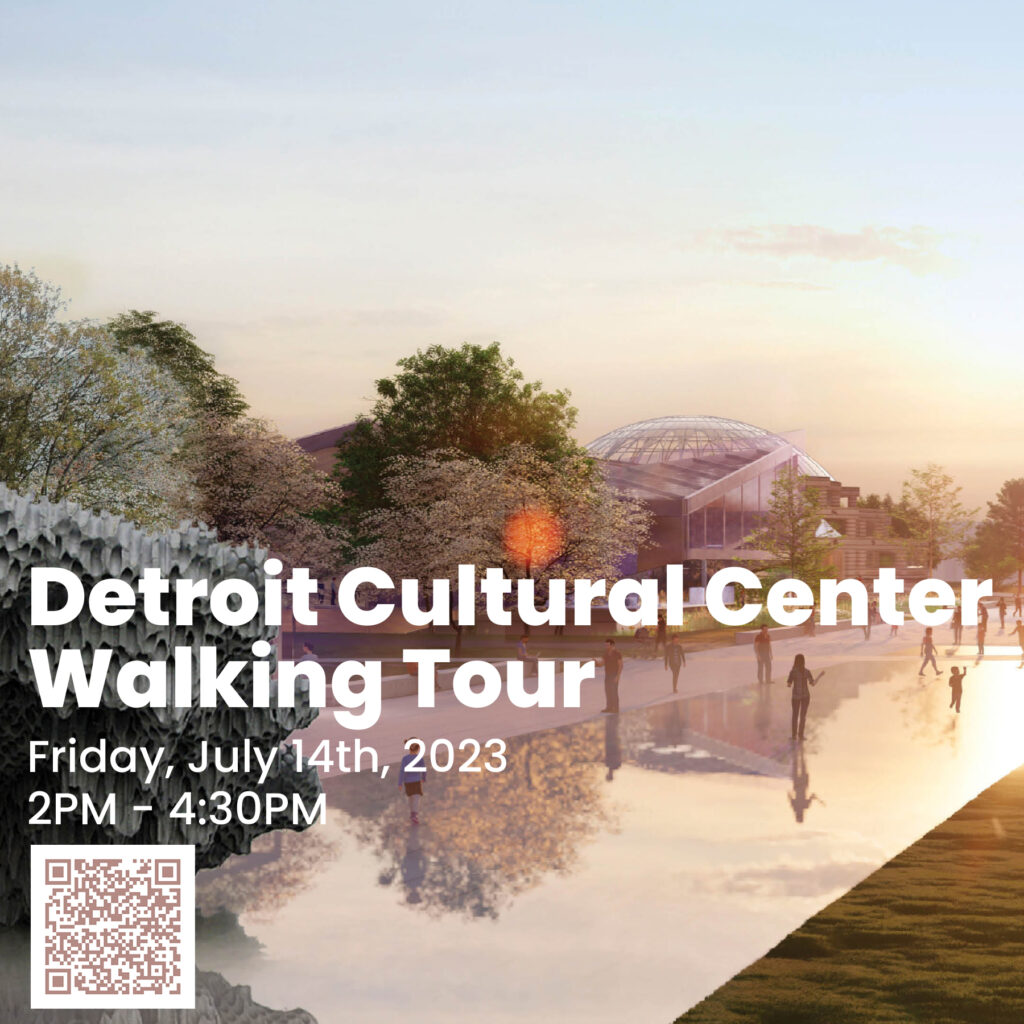Join Midtown Detroit Inc for an exclusive walking tour of the Detroit Cultural Center on Friday, July 14th, 2023 from 2:00 PM-4:30 PM. You’re invited to experience the vibrant tapestry of Detroit’s Cultural Center and the ambitions of the Cultural Center Planning Initiative on this immersive walking tour.
The tour will start at the Detroit Historical Museum, 5401 Woodward Avenue, Detroit, MI 48202. You’ll be led by guides who will share the bold vision of the Cultural Center Planning Initiative as we walk the grounds of the district and step inside select institutions to hear directly from cultural center leaders. We’ll conclude the tour at the Crystal Gallery at the Detroit Institute of Arts with hors d’oeuvres and light refreshments.
Don’t miss this opportunity to experience Detroit’s Cultural Center and share your ambitions for the future of the district. Reserve your spot now!
Registration is required: https://bit.ly/DetroitCulturalCenter.
If you have additional questions please contact Midtown Detroit, Inc. at (313) 420-6000.


